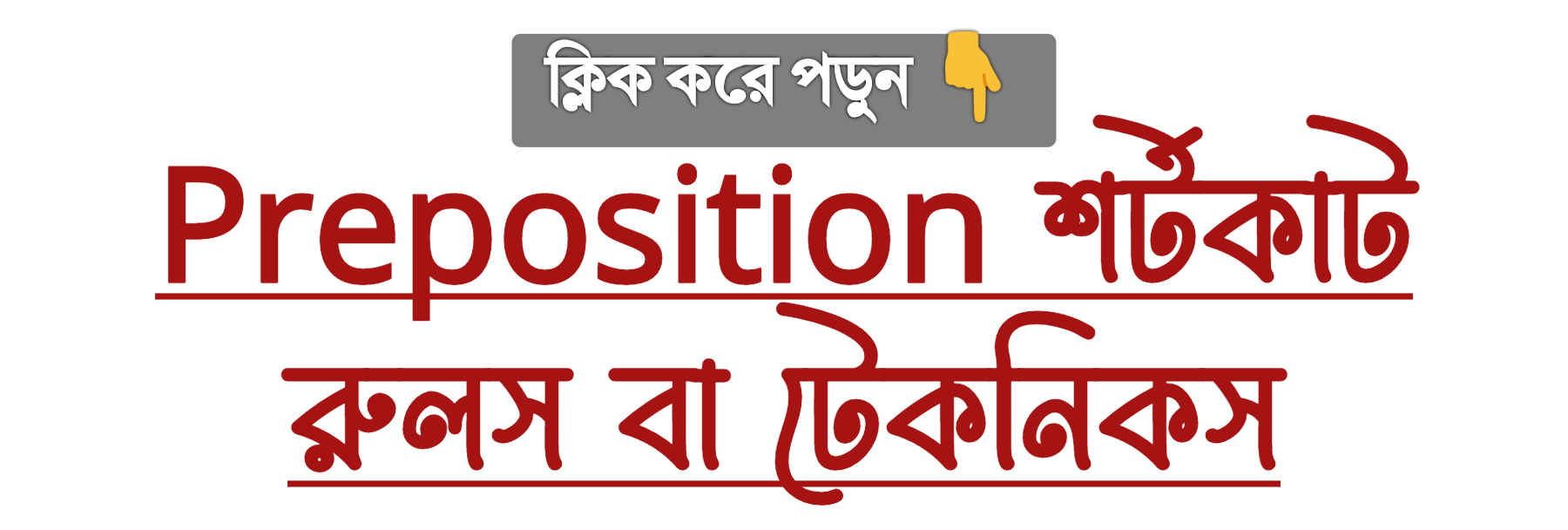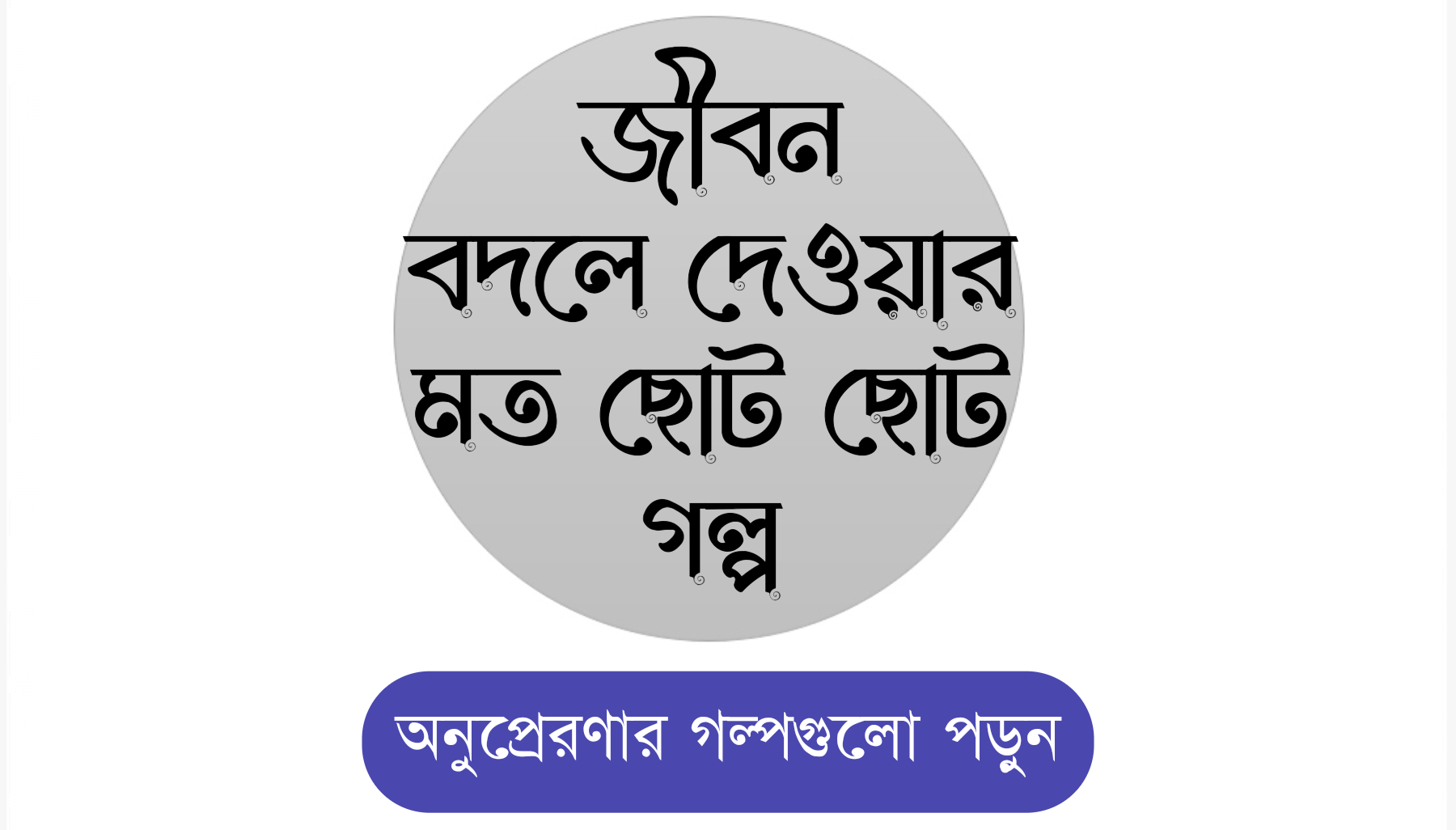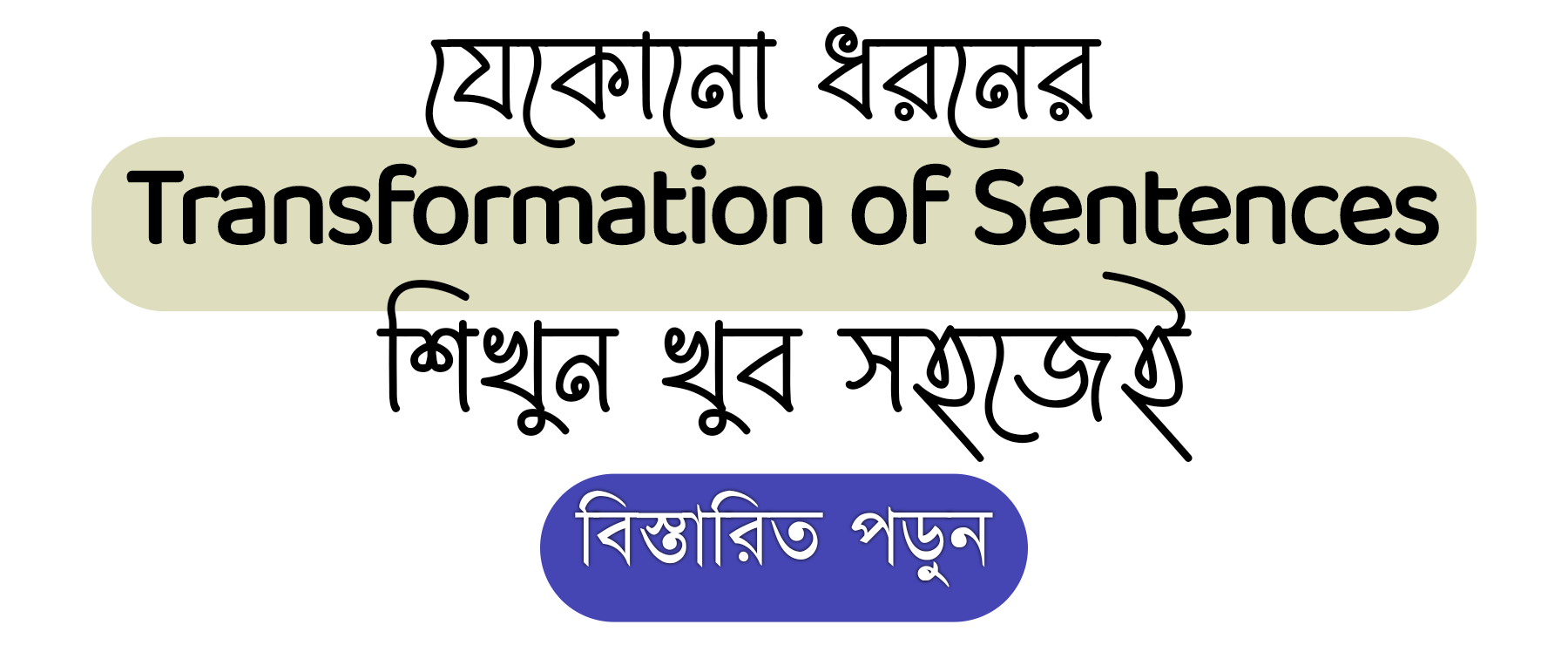Right form of verbs
ইংরেজি ভাষায় একটি Sentence এ ব্যবহূত প্রতিটি word-ই কোনো না কোনো কাজ করে থাকে। প্রতিটি word-এর মধ্যে Verb সবচেয়ে গুরুত্বপূর্ণ। সাধারণত যে word দ্বারা কোনো কিছু করা, হওয়া, থাকা, বোঝায় তাকে verb বলে। Verb is the heart of Sentence. তাই Verb কে বাক্যের প্রাণ বলা হয়ে থাকে। Verb গুলো সাধারণত Voice, Tense, Mood, Narrarion and Sentence পরিবর্তনে সহায়তা করে থাকে। একটি Sentence এ দুই ধরনের Verb ব্যবহূত হতে পারে। যেমন, Principal verb and Auxiliary verb.
Principal Verb: যে Verb নিজেই স্বাধীনভাবে অন্য Verb এর সাহায্য ছাড়াই ক্রিয়া সম্পাদন করে তাকে Principal Verb বলে।
Example : Rana writes an application.
Auxiliary Verb : যে verb-এর নিজস্ব অর্থ থাকে না, বিভিন্ন প্রকার Sentence অথবা Tense, Voice বা Mood-এর রূপ গঠনের জন্য অন্য verb কে সাহায্য করে থাকে তাকে Auxiliary Verb বলে।
Example : Rana is writing an application.
মনে রাখতে হবে যে কোনো কোনো সময় একই verb, principle and Auxiliary দুভাবেই ব্যবহূত হতে পারে। যেমন, I am a student. এখানে ‘am’ Principle verb.
আবার, I am writing a letter. এখানে ‘am’ Auxiliary verb.
Principle Verb and Auxiliary Verb ছাড়াও Finite Verb, Non-Finite Verb, Transitive Verb and Intransitive Verb রয়েছে, এগুলো গঠনের ক্ষেত্রে অগ্রণী ভূমিকা পালন করে থাকে।
Right form of verbs
1. Sentence যদি Present indefinite tense হয় এবং Subject যদি Third Person singular number হয়, তবে verb-এর সঙ্গে s/es যুক্ত হয়।
যেমন:
# Baized (write) a letter.
Ans.: Baized writes a letter.
# The baby (cry).
Ans.: The baby cries.
2. Simple sentence-এ দুটি verb থাকলে দ্বিতীয় verb-এর সঙ্গে ing যোগ হয় অথবা দ্বিতীয় verbটির আগে to বসে।
যেমন:
He saw the boy (play) in the field.
Ans.: He saw the boy playing in the field.
I heard him (speak).
Ans.: I heard him speaking.
He helps me (make) the house.
Ans.: He helps me making the house.
3. দ্বিতীয় verbটি যদি উদ্দেশ্য বোঝাতে ব্যবহূত হয় তবে দ্বিতীয় verb-এর আগে to বসে।
যেমন:
I went to the library (read) newspaper.
Ans.: I went to the library to read newspaper.
He repaired the boat (sell) it.
Ans.: He repaired the boat to sell it.
4. No sooner had ............. than, Scarcely had .......... when, Hardly had .......... when—প্রথম অংশ Past perfect tense অনুযায়ী হয়, অর্থাৎ verb-এর Past participle form হবে। দ্বিতীয় অংশ Past indefinite tense অনুযায়ী হয়, অর্থাৎ verb-এর Past form হয়।
যেমন:
a.No sooner had the bell (ring) than the teacher (enter) the classroom.
Ans.: No sooner had the bell rung than the teacher entered the classroom.
b.Scarcely had he (arrive) at the bus stand when the bus (leave).
Ans.: Scarcely had he arrived at the bus stand when the bus left.
c.Hardly had the snatcher (take) the chain when he (run) away.
Ans.: Hardly had the snatcher taken the chain when he ran away.
5. সাধারণত since দ্বারা দুটি clause যুক্ত থাকলে এবং since-এর আগের অংশ Present indefinite/Present perfect tense হলে পরের অংশ Past indefinite tense হয়।
যেমন:
It is many years since he (give) up smoking.
Ans.: It is many years since he gave up smoking.
Five years have passed since he (leave) the house.
Ans.: Five years have passed since he left the house.
6. আবার since দ্বারা clause যুক্ত থাকলে এবং since-এর আগে clause বা বাক্যের অংশ Past indefinite tense হলে পরের অংশ verb -এর Past perfect tense হয়।
যেমন:
Many years passed since I (meet) him last.
Ans.: Many years passed since I had met him last.
It was many years since I (visit) there.
Ans.: It was many years since I had visited there.
7. Passive voice-এ সর্বদা verb-এর past participle form হয়।
যেমন:
This work was (do) by him.
Ans.: This work was done by him.
The problem has been (solve) by him.
Ans.: The problem has been solved by him.
The school was (close) for sine die.
Ans.: The school was closed for sine die.
8. Before দ্বারা দুটি Past tense যুক্ত থাকলে before-এর আগের অংশে Past perfect tense এবং পরের অংশ Past indefinite tense হয়।
যেমন:
We (reach) our school before the bell rang.
Ans.: We had reached our school before the bell rang.
The patient had died before the doctor (come).
Ans.: The patient had died before the doctor came.
9. After দ্বারা দুটি Past tense যুক্ত থাকলে এর আগের অংশ Past indefinite tense এবং পরের অংশ Past perfect tense হয়।
যেমন:
They arrived the station after the train (leave).
Ans.: They arrived the station after the train had left.
The patient (die) after the doctor had come.
Ans.: The patient died after the doctor had come.
10. Have, has, had, got, get, cause, make ইত্যাদি verb গুলি যখন কোন sentence এর মধ্যে Causative verb এর কাজ করে তখন main verb টি past participle হয়।
I got the work done by him.
11. একই দৈর্ঘ্য, পরিমাণ বা স্থান বুঝালে subject দেখতে plural হলেও verb singular হয়।
Fifty miles is a long way.
12. Am, is, are, was, were ইত্যাদি to be verb- এর পর passive voice এর ক্ষেএে main verb-এর past participle হয়।
The book was stolen.
13. Modal auxiliary verb যেমন : can, could, may, might, should, would, ought to, used to, must ইত্যাদি থাকলে মূল verb-এর present form হয়।
যেমন:
He can (do) it easily. Ans.: He can do it easily.
Everybody should (respect) his parents.
Ans.: Everybody should respect his parents.
It may (rain) today. Ans.: It may rain today.
14. সাধারণত sentence যদি ভবিষ্যৎ নির্দেশক শব্দ বা phrase যেমন: tomorrow, the day after tomorrow, in future, next ইত্যাদি থাকলে future indefinite tense হবে এবং verb-এর present form বসে।
যেমন:
I (go) to Dhaka tomorrow.
Ans.: I shall go to Dhaka tomorrow.
He (join) there the next day.
Ans.: He will join there the next day.
15. Sentence-এর subject singular number হলে verb singular হয় এবং subject plural হলে verb plural number হয়।
যেমন:
The taste of the mangoes (to be) sour.
Ans.: The taste of the mangoes is sour.
The flowers of the garden (to be) beautiful.
Ans.: The flowers of the garden are beautiful.
These papers (to be) printed.
Ans.: These papers are printed.
16. মূল verb-এর আগে to be বা having থাকলে verb-এর past participle form হয়।
যেমন:
A community centre is going to be (establish).
Ans.: A community centre is going to be established.
I do not mind (have) a cup of coffee.
Ans.: I do not mind having a cup of coffee.
He went home (have) his salary.
Ans.: He went home having his salary.
17. সাধারণত It is time, it is high time, wish ইত্যাদির পরে subject ও bracket-এ মূল verb থাকলে verb-এর past form হয়।
যেমন:
It is time you (finish) a course on English language.
Ans.: It is time you finished a course on English language.
I wish I (sing). Ans.: I wish I sang.
আবার, It is time, it is high time-এর পর যদি bracket-এ মূল verb থাকে, তবে ওই verb-এর আগে to বসবে এবং ওই verb অপরিবর্তিত থাকবে।
যেমন:
It is time (play). Ans.: It is time to play.
It is high time (stand) by the flood-affected people.
Ans.: It is high time to stand by the flood-affected people.
18. As if, as though, wish ইত্যাদি থাকলে subject-এর পরে be verb-এর পরিবর্তে were বসে।
যেমন:
He behaves as if he (be) a leader.
Ans.: He behaves as if he were a leader.
I wish I (be) a millionaire.
Ans.: I wish I were a millionaire.
19. As if, as though দ্বারা দুটি clause যুক্ত থাকলে প্রথম clauseটি Present tense হলে পরবর্তী clauseটি Past indefinite হয়। প্রথম clauseটি Past tense হলে পরের clauseটি Past perfect tense হয়।
যেমন:
He behaves as if he (buy) the car.
Ans.: He behaves as if he bought the car.
He spoke as though he (do) a great task.
Ans.: He spoke as though he had done a great task.
20. While যুক্ত sentence-এ while-এর পরে verb থাকলে verb-এর সঙ্গে ing যোগ হয়। আবার while-এর পরে subject থাকলে Past continuous tense হয়।
যেমন:
While (take) dinner, he received the phone.
Ans.: While taking dinner, he received the phone.
While I (play) in the field, I saw him coming.
Ans.: While I was playing in the field, I saw him coming.
21. Lest দ্বারা দুটি clause যুক্ত থাকলে lest-এর পরবর্তী subject-এর সঙ্গে auxiliary verb ‘should’/‘might’ বসে।
যেমন:
Read attentively lest you (fail) in the examination.
Ans.: Read attentively lest you should fail in the examination.
Walk fast lest you (be) late in your class.
Ans.: Walk fast lest you might be late in your class.
22. Would that দ্বারা sentence শুরু হলে subject-এর পরে could বসে এবং মূল verb-এর Present form হয়।
যেমন:
Would that I (be) a bird!
Ans.: Would that I could be a bird!
Would that I (visit) Cox’s Bazar
Ans.: Would that I could visit Cox’s Bazar
23. সাধারণত each, one of, every, either, neither ইত্যাদি দ্বারা কোনো subject গঠিত হলে সেটি third person singular number হয়। তাই এদের পরের verbটিও singular number হয়।
যেমন:
Each boy (come) here.
Ans.: Each boy comes here.
Everybody (wish) to be happy.
Ans.: Everybody wishes to be happy.
24. Adjective-এর আগে the বসলে subjectটি plural হয় এবং তদনুযায়ী verb বসে।
যেমন:
The virtuous (to be) blessed.
Ans.: The virtuous are blessed.
The poor (live) from hand to mouth.
Ans.: The poor live from hand to mouth.
25. Titles, names, phrase of measurement দেখতে plural হলেও singular verb হয়।
যেমন:
Thirty miles (to be) a long way.
Ans.: Thirty miles is a long way.
Star Wars (to be) an excellent movie.
Ans.: Star Wars is an excellent movie.
Eight hours (to be) a long time to work.
Ans.: Eight hours is a long time to work.
26. কোনো sentence ‘It’ দ্বারা শুরু হলে পরবর্তী verb singular হয়।
যেমন:
It (to be) difficult to do.
Ans.: It is difficult to do.
It (to be) you who have done this.
Ans.: It is you who have done this.
27. কোনো sentence যদি introductory there দ্বারা শুরু হয় এবং তারপর singular number থাকে, there-এর singular verb হয়। আর যদি there-এর পরে plural number থাকে তবে plural verb হয়।
যেমন:
There (to be) a big river beside our village.
Ans.: There was a big river beside our village.
There (to be) a lot of work left for us.
Ans.: There were a lot of work left for us.
28. Let, had better, had rather, would better, would rather ইত্যাদি থাকলে form বসে।
যেমন:
I would rather die than (beg).
Ans.: I would rather die than beg.
Would you let me (go) there?
Ans.: Would you let me go there?
29. If যুক্ত clause-এর প্রথম অংশ Present indefinite tense হলে পরের অংশ Future indefinite হয়, অর্থাৎ structureটি হয় ‘If + Present + Future’.
যেমন:
If you work hard, you (prosper) in life.
Ans.: If you work hard, you will prosper in life.
If he reads more he (pass) in the examination.
Ans.: If he reads more, he will pass in the examination.
30. If-যুক্ত clause-এর প্রথম অংশ Indefinite tense হলে পরের অংশে subject-এর পরে would/could/might বসে এবং verb-এর Present form হয়। অর্থাৎ, structureটি হয় ‘If + Past indefinite’—(Subject + would/could/might + verb-এর Present form)।
যেমন:
If he agreed, I (give) the money.
Ans.: If he agreed, I would give the money.
If you studied, you (get) a good result.
Ans.: If you studied, you would get a good result.
If they tried, they (succeed).
Ans.: If they tried, they would succeed.
31. If-যুক্ত clause-এর প্রথম অংশ Past perfect tense হলে পরের অংশে subject-এর পরে would have/could have/might have বসে এবং verb-এর Past participle form হয়।
যেমন:
If you had finished it sincerely, you (get) a profit.
Ans.: If you had finished it sincerely, you would have got a profit.
If I had possessed vast wealth, I (help) the poor people.
Ans.: If I had possessed vast wealth, I would have helped the poor people.
32. To ব্যাতিত preposition-এর পরের verb-এর সঙ্গে ing যুক্ত হয়।
যেমন:
He is now engaged in (read).
Ans.: He is now engaged in reading.
One can gather knowledge by (travel).
Ans.: One can gather knowledge by traveling.
33. Can not help, could not help, look forward to, with a view to, get used to, mind ইত্যাদির পরে verb-এর সঙ্গে ing যুক্ত হয়।
যেমন:
He came to Dhaka with a view to (find) a job.
Ans.: He came to Dhaka with a view to finding a job.
I cannot help (laugh).
Ans.: I cannot help laughing.
34. কোনো sentence-এর শুরুতে subject-এর স্থানে verb থাকলে verb-এর সঙ্গে ing যোগ হয়।
যেমন:
(To swim) is a good exercise.
Ans.: Swimming is a good exercise.
(To speak) is an art.
Ans.: Speaking is an art.
35. If-যুক্ত clause-এর প্রথমটিতে subject-এর পর were থাকলে দ্বিতীয় অংশে subject-এর পরে would/could/ might বসে এবং verb-এর Present from বসে। আবার, would have/could have/would have-ও বসতে পারে। সে ক্ষেত্রে verb-এর Past participle form বসে।
যেমন:
If I were an artist, I (draw) a nice picture.
Ans: If I were a artist, I would draw a nice picture.
If I were a billionaire, I (establish) a hospital for the poor.
Ans.: If I were a billionaire, I would establish a hospital for the poor.
36. Had-এর পরে subject এবং verb-এর Past participle থাকলে পরবর্তী clause-এর subject-এর পরে would have/could have/might have + verb-এর Past participle form বসে।
যেমন:
Had I been a teacher, I (talk) the real story to my students.
Ans.: Had I been a teacher, I would have talked the real story to my students.
37. Verb ‘to be’-বিহীন sentence-কে negative বা interrogative করতে হলে tense ও subject-এর number ও person অনুসারে do, does, did ব্যবহার করতে হবে।
যেমন:
We not (play) Ha-du-du.
Ans.: We do not play Ha-du-du.
She not (play) football.
Ans.: She does not play football.
38. সাধারণত preposition—on, in of, for, from, by, after at, beyond, upon, against, with, without, before ইত্যাদি—এর পরে verb-এর সঙ্গে ing যোগ হয়।
যেমন:
Rina is busy in (do) her homework.
Ans.: Rina is busy in doing her homework.
Keep on (try) hard.
Ans.: Keep on trying hard.
39. Interrogative sentence যদি who, what, why, which, when, where, whose, how ইত্যাদি question word দ্বারা শুরু হয়, তাহলে subject-এর আগে tense ও person অনুযায়ী auxiliary verb ব্যবহার করতে হবে।
যেমন:
Why he (look) so happy?
Ans.: Why does he look so happy?
When father (come)?
Ans.: When will father come?
40. সাধারণত নিচে লিখিত verb-গুলোর পরে gerund বসে। যেমন: admit, enjoy, report, appreciate, finish, recent, avoid, mind, resist, miss, resume, consider, postpone, risk, delay, practice, suggest, escape, imagine, save, recall, prevent, propose, stop, deny, quit ইত্যাদি।
যেমন:
We enjoy (watch) TV.
Ans.: We enjoy watching TV.
I have finished (writing).
Ans.: I have finished writing.
41. Point of time (নির্দিষ্ট সময়) বোঝালে since এবং period of time (অনির্দিষ্ট সময়) বোঝালে for বসে। এ ক্ষেত্রে present perfect continuous tense হবে।
Example
He (read) — the book for two hours.
Ans. He has been reading the book for two hours.
It (rain) — since morning.
Ans. It has been raining since morning.
42. As well as, with, accompanied with, along with, together with, in addition to ইত্যাদি দিয়ে দুটি subject যুক্ত হলে প্রথম subject অনুযায়ী verb বসে।
Example:
Becon as well as Shakespeare (be) — dead.
Ans. Becon as well as Shakespeare was dead.
My sister accompanied with Zilan will (to have) — a test tomorrow.
Ans. My sister accompanied with Zilan will have a test tomorrow.
They together with me (to help) — the poor.
Ans. They together with me help the poor.

















